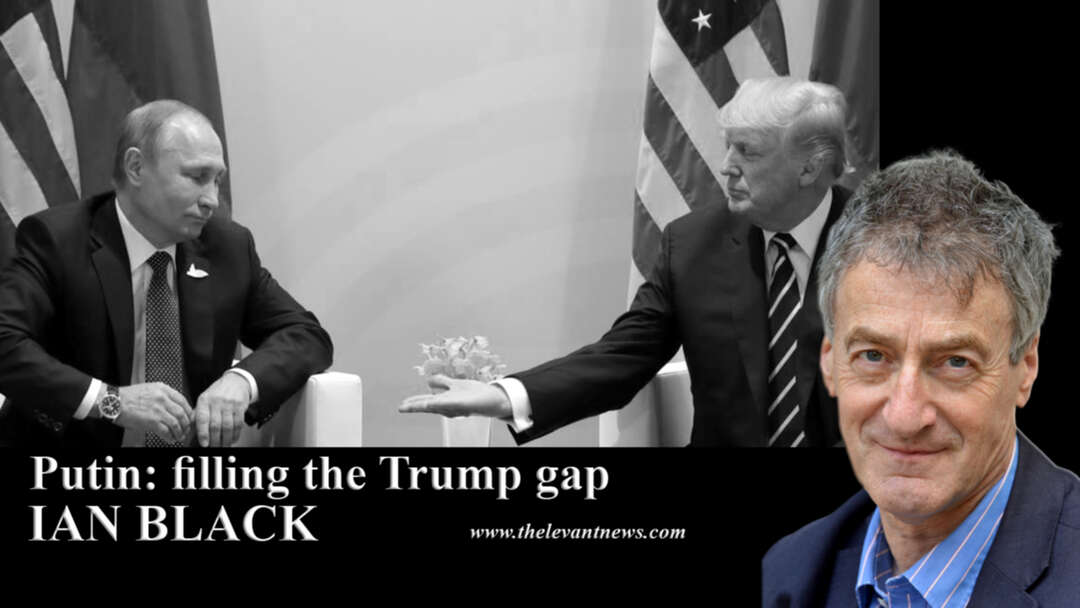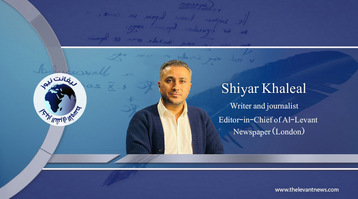-
Putin: filling the Trump gap ?

The Russian president’s timing was impeccable. Days earlier his American counterpart, Donald Trump, announced that he had agreed with Turkey’s Recep Tayyip Erdogan on the withdrawal of US forces from northern Syria and given the “green light” for a Turkish offensive against the Kurdish fighters who had spearheaded the defeat of Daesh.
Trump’s disruptive behavior has fueled the growing perception of US disengagement from the Middle East, ironically as part of his “Make America Great Again” policy. And the leader who has benefited most from that served the KGB loyally in the depths of the Cold War and now resides in the Kremlin.
Five years ago, following Russia’s annexation of Crimea and its undeclared war in eastern Ukraine, Putin faced international condemnation and punitive sanctions. Nowadays, however, he is being wooed. Emmanuel Macron, the French president, warned recently that Europe “would disappear” if it did not seek rapprochement with Russia. Putin’s role in Syria has been central to that change.
Moscow backed Bashar al-Assad from the start of the crisis in 2011. But the inaction of others helped it secure greater influence - and far beyond Syria. The “red line” that Barack Obama first declared and then ignored in August 2013 when the regime used chemical weapons in Eastern Ghouta was a highly significant one.
It not only eroded the sense that the most powerful country on earth was prepared to use force but also paved the way for face-saving Russian diplomatic involvement in the immediate crisis and for Putin’s military intervention in Syria in September 2015. That was aptly described by one commentator as a “sales demonstration” showing that “Russia will, if asked, intervene on the side of the incumbent ruler in the interest of stability, and it will do so quickly and without political strings attached.”
Trump’s moves have made things even easier for Putin. By strengthening his ally Assad and abandoning the Kurds, the man in the Oval Office reinforced the sense that the US can no longer be trusted. Turkey has never been so unpopular with other members of Nato, partly due to its decision to buy an advanced Russian missile defence system.
Still, none of that means that Moscow has replaced Washington as a global super-power. Russia has a naval base at Tartus in Syria and use of air bases at Hmeimim and elsewhere. The US has bases from Iraq to Qatar. The Fifth Fleet is based in Bahrain. The Pentagon and the CIA have intimate links to military and intelligence bodies in Israel, Saudi Arabia, Egypt and beyond.
In other words there is unlikely to be a repeat – in reverse – of Egyptian president Anwar Sadat’s expulsion of Soviet advisers in 1972, as a prelude to his pivot to America’s sphere of influence.
Russia’s diplomatic weight, however, does appear to be growing. It may not be liked by America’s traditional Arab allies but is respected for its decisive and pragmatic support for Assad and is now setting itself up as the go-to outside player. It benefits too from far closer relations with Iran than the US.
Iran, Israel, Turkey, Saudi Arabia and others have increased their engagement with Moscow. That looks set to continue. Another factor is that Russian policy is not subject to parallel scrutiny to US congressional oversight of arms deals. Russia is seen too as a reliable partner on both energy – where it pursues its interests with vigour – as well as security.
The economic facts, nevertheless, do not support the superficial assertion that Russian influence is supplanting America’s. California alone struck more deals with UAE in 2018 than Russia committed to during Putin’s recent visit. And US trade with the region far surpasses what Russia has to offer. US GDP is 12 times that of Russia. Moscow cannot and will not replace Washington in the Middle East for a long time.
There are strict limits to what Putin can offer US partners in the Gulf. That will mean Arab hedging and diversification rather than abandonment of the US, which is still the power best equipped to mobilise resources, form international coalitions and effectively oppose Iran.
One option for the Saudis, for example, could be to buy a Russian-made air defense system. Another might be for Moscow to ask Riyadh to restore links with Assad (the UAE and Bahrain have both re-opened their embassies in Damascus recently).
What is certainly clear is that as the American commitment to the Middle East is perceived as weakening, that offers opportunities to others – to Russia and of course to China as well.
You May Also Like
Popular Posts
Caricature
Syrians' concerns now
- December 10, 2024
Syrians' concerns now #Syria
#Bashar_al-Assad
#Liberation_of_Syria
#Syrians
#Future_of_Syria
#Levant_News

opinion
Report
ads
Newsletter
Subscribe to our mailing list to get the new updates!



















